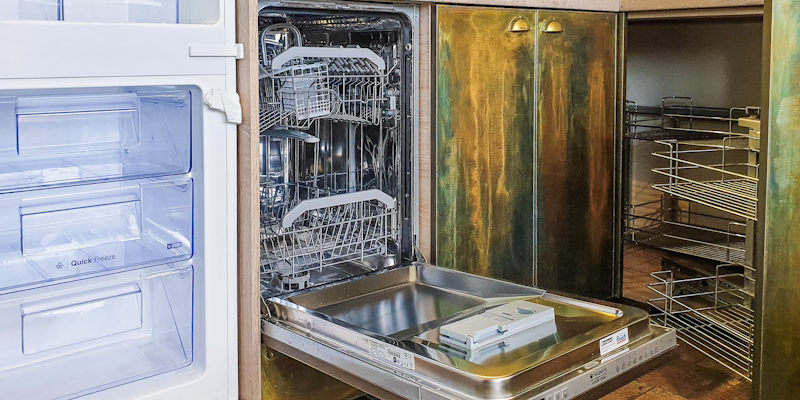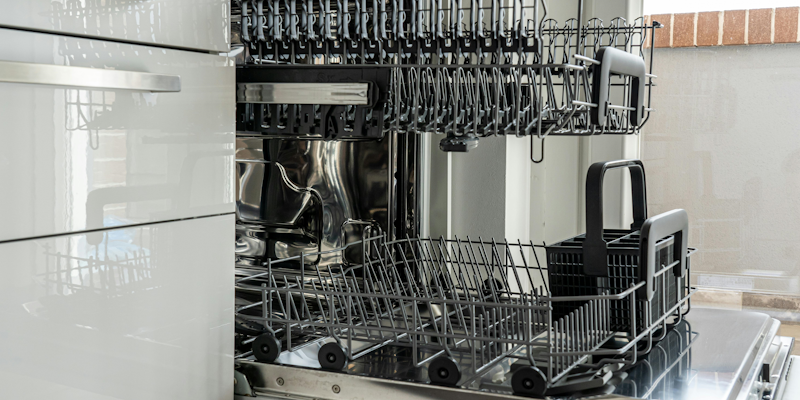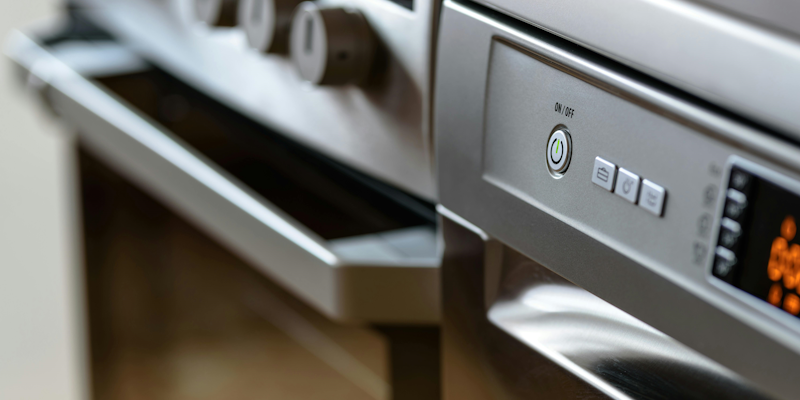
Investing in a new dishwasher is a decision that combines practicality with considerations of budget and functionality. With a plethora of options available on the market, understanding the factors influencing the cost of a dishwasher is essential. In this comprehensive guide, we’ll explore the various aspects that contribute to the pricing of dishwashers, delve into the different types and features available, and provide insights on how to make an informed decision that aligns with your needs and budget.
Types of Dishwashers
Before diving into the cost considerations, it’s crucial to understand the different types of dishwashers available. Each type comes with its own set of features and price points.
Built-In Dishwashers:
- Built-in dishwashers are the most common type and are designed to fit seamlessly into standard kitchen cabinetry. They come in various sizes, typically 18 inches or 24 inches wide.
Portable Dishwashers:
- Portable dishwashers are freestanding units that can be moved around as needed. They are ideal for renters or those with limited kitchen space. While they offer convenience, they may have a smaller capacity compared to built-in models.
Drawer Dishwashers:
- Drawer dishwashers feature separate drawers that operate independently, allowing for flexibility in usage. They are often more expensive than traditional built-in models but can be a great choice for smaller households or those with diverse cleaning needs.
Countertop Dishwashers:
- Countertop dishwashers are compact and designed to sit on your kitchen counter. While they may not have the same capacity as larger models, they offer a space-saving solution for smaller kitchens.
Dishdrawer Dishwashers:
- Dishdrawer dishwashers combine the convenience of drawers with the functionality of traditional dishwashers. They provide flexibility in terms of loading and unloading and are suitable for various kitchen layouts.
Factors Influencing Dishwasher Costs

Understanding the components that contribute to the overall cost of a dishwasher is essential for making an informed purchasing decision. Here are the key factors to consider:
1. Brand and Reputation:
- Established and reputable brands often come with a higher price tag. These brands may offer advanced features, better build quality, and reliable customer service.
2. Capacity:
- The capacity of a dishwasher, measured in terms of place settings or interior volume, influences its cost. Larger capacity dishwashers generally come at a higher price.
3. Features and Technology:
- Advanced features, such as specialized cleaning cycles, smart technology, and energy-efficient options, contribute to the cost. Consider which features are essential for your needs and lifestyle.
4. Material and Build Quality:
- Dishwashers constructed with premium materials and a higher build quality tend to be more expensive. Stainless steel interiors, for example, are durable but may increase the overall cost.
5. Noise Level:
- Quieter dishwashers, often measured in decibels (dB), tend to be more expensive. If noise is a concern, investing in a dishwasher with a lower decibel rating may be worthwhile.
6. Energy Efficiency:
- Energy-efficient dishwashers with high Energy Star ratings may come at a higher upfront cost but can result in long-term savings on utility bills.
7. Design and Aesthetics:
- Dishwashers with sleek designs, customizable panels, or specific finishes may have a higher price point. Consider your kitchen’s aesthetic and how well the dishwasher integrates with the overall design.
8. Warranty and Support:
- The length and terms of the warranty, as well as the availability of customer support, can influence the cost. Some higher-priced models may come with extended warranties for added peace of mind.
Breaking Down the Price Ranges

Dishwasher prices can vary widely, catering to different budgets and preferences. Here’s a breakdown of the general price ranges you can expect:
Budget-Friendly Dishwashers (Under $500):
- Dishwashers in this range are typically basic models with essential features. They may lack some advanced technologies and design elements but offer reliable performance.
Mid-Range Dishwashers ($500 – $1,000):
- This category includes dishwashers with a balance of features, performance, and affordability. Models in this range often have more advanced cleaning options and design choices.
High-End Dishwashers ($1,000 – $2,000+):
- High-end dishwashers come with premium features, advanced technologies, and stylish designs. These models may offer specialized cleaning cycles, customizable options, and enhanced durability.
Top Dishwasher Brands and Their Price Range
1. Bosch:
- Bosch is known for its high-quality, efficient dishwashers. Prices generally range from $600 to $2,000.
2. Samsung:
- Samsung offers a variety of dishwashers with prices ranging from $500 to $1,500, catering to different budget levels.
3. KitchenAid:
- KitchenAid dishwashers are renowned for their performance and design. Prices typically range from $700 to $2,000.
4. LG:
- LG provides a range of dishwashers with prices spanning from $600 to $1,500, offering both affordability and advanced features.
5. Miele:
- Miele is a premium brand known for its high-end dishwashers, with prices starting around $1,000 and going up to $3,000 or more.
Pricing and Differences of DIY vs. Professional Installation

When considering the cost of a new dishwasher, it’s essential to factor in the installation process. DIY installation is a viable option for those with handyman skills and a good understanding of plumbing and electrical work. It can potentially save you money as you won’t incur additional labor costs. However, professional installation ensures that the dishwasher is installed correctly, reducing the risk of leaks or electrical issues. Professionals can also handle any unexpected challenges that may arise during the installation process, providing peace of mind.
The cost of professional installation can vary depending on your location and the complexity of the installation. On average, professional installation costs can range from $100 to $300. Some retailers offer installation as part of the purchase package or may provide it at a discounted rate. It’s crucial to weigh the convenience and expertise that professional installation offers against the potential savings of a DIY approach.
Making an Informed Purchase
Evaluate Your Needs:
Consider your household size, usage patterns, and specific requirements. This will help you determine the appropriate capacity and features needed.
Research Brands and Reviews:
Explore customer reviews and expert opinions on different brands and models. Consider the reputation of the manufacturer and the reliability of customer support.
Energy Efficiency:
Look for Energy Star-rated dishwashers to ensure energy efficiency. While they may have a higher upfront cost, the long-term savings on utility bills can make them a wise investment.
Compare Features:
Assess the features offered by different models. Decide which features are essential for your lifestyle and which ones you can do without. This will help you prioritize and stay within your budget.
Consider Long-Term Costs:
While a higher upfront cost might seem daunting, consider the long-term benefits and potential savings in energy costs. A more efficient dishwasher can be a cost-effective choice over its lifespan.
Finding the Right Dishwasher for You
Choosing a new dishwasher involves balancing your budget, personal preferences, and the needs of your household. By understanding the various factors that influence the cost of dishwashers and considering the types, features, and brands available, you can make an informed decision. Whether you opt for a budget-friendly model or invest in a high-end dishwasher with advanced features, the goal is to find a reliable appliance that suits your lifestyle and enhances the efficiency of your kitchen. As technology continues to evolve, today’s dishwashers offer not only convenience but also an array of features that make kitchen chores a breeze.
Frequently Asked Questions (FAQs)
**1. What is the Average Lifespan of a Dishwasher?
- The average lifespan of a dishwasher is around 10-13 years. Regular maintenance and proper usage can extend its longevity.
**2. Is Professional Installation Necessary?
- While some homeowners opt for professional installation, many dishwashers come with user-friendly installation guides. Following the manufacturer’s instructions can help you set up your dishwasher correctly.
**3. Are Extended Warranties Worth It?
- Extended warranties can provide additional peace of mind, especially for high-end models. Consider factors such as the length of the warranty, the reliability of the brand, and the cost of repairs without a warranty.
**4. How Can I Make My Dishwasher More Efficient?
- To enhance efficiency, ensure proper loading, use energy-efficient cycles, scrape off excess food before loading, and regularly clean the dishwasher’s filters and spray arms.
**5. Are There Any Rebates or Discounts Available?
- Manufacturers and utility companies may offer rebates or discounts on energy-efficient appliances. Check with the retailer and local utility providers for potential savings.
